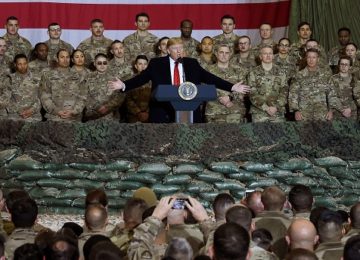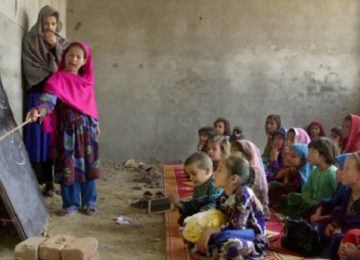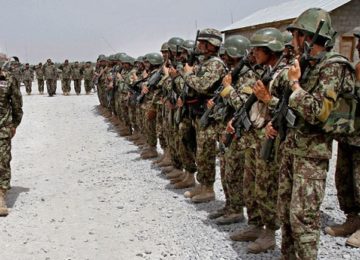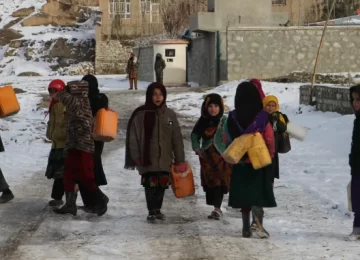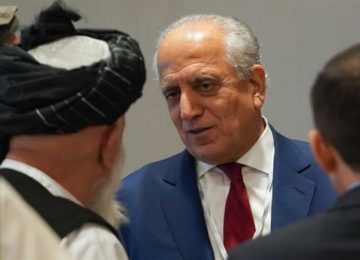Speaking at the 9th Pak-Afghan Youth Dialogue at the Center for Research & Security Studies (CRSS) on ‘Uniting against Social Crimes in Pakistan and Afghanistan’ held on Friday, February, 16, 2018, Chief Guest and Speaker Dr. Farzana Bari shed light on the deep-seeded socio-economic inequalities, particularly prevailing poverty, existing in Pakistan and Afghanistan as the drivers setting fertile grounds for increasing social crimes, societal intolerance, and disobedience of the rule of law. Highlighting the role of the state in this regard, she stated that at the core of state’s responsibilities lies its duty to regulate and provide security to its subjects. In order to curb crimes, she emphasized, governments establish certain punishment mechanisms which are implemented as a result of the unspoken social contract between the state and its citizens.
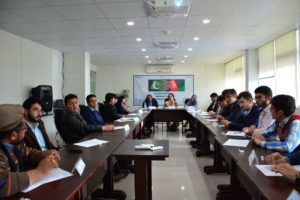
Mr. Aized Ali, Project Director CRSS, who was moderating the session, welcomed the participants and thanked Dr. Farzana. He apprised the participants about the ongoing CRSS Pak-Afghan Track 1.5/II Initiative ‘Beyond Boundaries’ which is aimed at improving bilateral relations and bridging the gulf of mistrust between Pakistan and Afghanistan. He further told participants that Afghan Studies Center is an off-shoot of this initiative, aimed at providing a platform to the youth of both countries to interact in a healthy discourse, inculcate passionate debate and exchange ideas for finding common grounds. Introducing the Chief Guest, he stated Dr. Farzana is a widely-respected human rights activist and remained as a university professor at Quaid-i-Azam University for the last 26 years. Additionally, she is an authority on women’s rights and has been actively involved in raising awareness in this regard.
Expounding on the social fabrication of Pakistan and Afghanistan, Dr. Bari stated that since long, both neighbors have primarily been engaged in state-building, instead of nation-building, as a result of the protection of citizen’s social and civil rights has been sidelined to be replaced with state interests. She further explained that in a state-building approach, human resource is not focused that much, whereas in a nation-building approach, human resource is the center of policy radar. Early forced and child marriages, illiteracy, honor killing etc. are common in both countries. Women who constitute about 51% of the total population in the two countries are considered as second class citizens and their social and civil rights are neglected by the society.
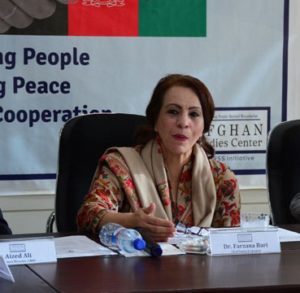
In the interactive discussion among the participants, forced child labor was raised as an example of another form of social crime which is an aftermath of poor socio-economic condition of both societies. Poverty compels families to expose their children into very harsh conditions to earn money and become the bread-winners for whole family. Moreover, children belonging to poor families are most often exploited by mafia gangs for illegal acts such as begging and smuggling.
Dr. Farzana, while agreeing with the points mentioned by the participants, added that feudalism is also a very distinctive facet of social crime in Pakistan. In addition to that, drug addiction, too, is becoming increasingly prevalent in the youth of both the nations. Now, there is a whole emerging context to drug addiction which is often ignored; the frustration of youth, due to lack of employment, academic and extra-curricular opportunities, leading them towards drug addiction.
Comparing the contemporary times with the 1960s and 1970s, Dr. Farzana stated that Afghanistan was considered as one of the most modern and liberal nations of the world. Similarly, Pakistani society in those decades was also very much secular and progressive. So the question arises that what has changed over the course of time that led to so much radicalization? First factor in this regard, she stated, was the deterioration of peace and stability due to continued conflict in the region linked with internal and external factors, such as global politics. Dr. Farzana told the participants that to fight against internal frictions and other issues bred by global politics, the youth need to unite their efforts for common peaceful future; as without peace, very little can be achieved. She urged the youth to come together and utilize the existing avenues and spaces, such as the social media, which is an effective space in this regard if used positively, to carve out a future for themselves. Consequently, she stated, both nations will be able to have a common voice to bring positive change in their societies against social crimes.
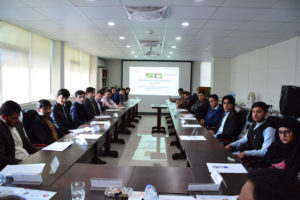
The participants were asked to share their views and recommendations for eradication of social crimes in both countries. They unanimously urged the governments of Pakistan and Afghanistan to work on soft areas and set aside their differences. With concerted efforts, both countries can focus on other common areas, ensuring socio-economic development, provision of social justice, and enhanced economic connectivity. Afghan and Pakistani participants added that at forums like these we ought to talk and engage with each other, instead of getting upset and sticking to historical baggage, and work towards building a common understanding. We, the youth, have to think how we can bring change. We can start with setting a minimum agenda for ourselves and play our own role within our circles of influence in eradicating social crimes, they added. The dialogue concluded that the future belongs to the youth as in both countries the youth represents more than 60% of the population.
Dr. Farzana Bari also commended the efforts of CRSS for organizing such meaningful and constructive dialogues to instill critical thinking and building a positive understanding. At the conclusion of the dialogue, Mr. Aized Ali presented Dr. Farzana Bari an honorary shield of appreciation. Further, Ms. Sahar Hamidi from Afghanistan was nominated as the Pak-Afghan Youth Ambassador for February 2018 and was awarded a shield by Dr. Farzana. The dialogue ended with a group photo and refreshments.
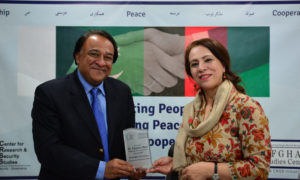
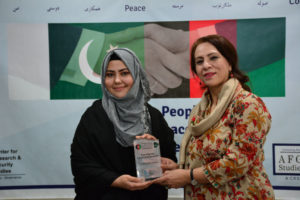
The session was part of the ongoing series of Pak-Afghan Youth Dialogue initiated by CRSS’ Afghan Studies Center which is aimed at promoting academic, cultural and sports exchanges between the youth of Pakistan and Afghanistan, and creating young leaders who can become advocates of peace in the region.
© Center for Research and Security Studies (CRSS) and Afghan Studies Center (ASC), Islamabad.




